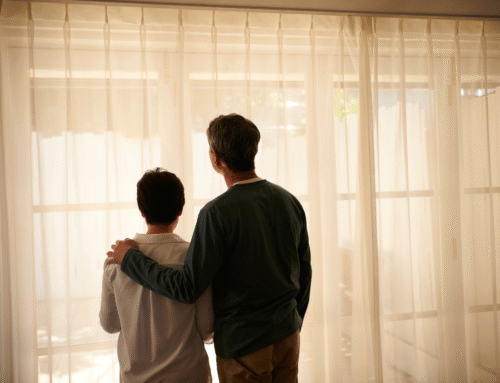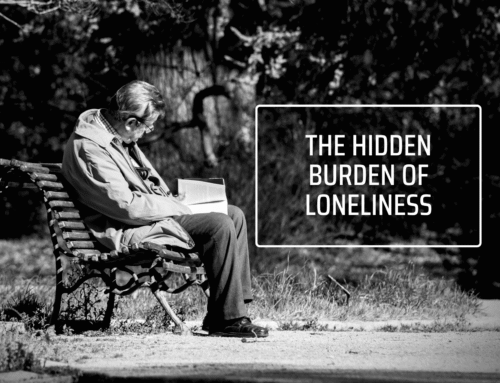
“I Don’t Want Dialysis” – Living with a Mother’s Wish
I still vividly remember her last night here. She wasn’t fully conscious. Just enough to keep pulling down the face mask providing her with oxygen and opening her eyes to stare at me, before she resumed dozing off. I have no idea if she knew I was there. Yet, I still sat at her side, holding her hand. The nurse on duty entered her room, and started tapering down the dopamine infusion started on the day she was admitted. What seemed like days ago, in reality was only the night before.
My mom was diagnosed with kidney impairment about three years ago. We hadn’t realized that she had any problems with her kidneys until then. Sure, she had the “whole package” of issues – diabetes, hypertension and high cholesterol levels and she had undergone major open-heart surgery over 10 years ago. Yet, she looked healthy. She was active, she was strict with her diet, and she made sure she took her medications properly – she looked good. The thing about insidious diseases, they allow a person to look “fine” or “good” until at one point, the whole illusion comes crashing down.
I’m a daughter. I’m a healthcare professional. I was living my life as most do. Too busy with work, too busy doing the things that had to be done – just too busy. I kept an eye on her, but it wasn’t enough. I didn’t have the time to follow her to doctors’ appointments, I didn’t have time to look at the blood work, and I believed her when she said that everything was fine.
Three years ago, that changed. My mom was 76 years old, with chronic kidney disease. I knew that that wasn’t a good thing; not at that age nor with her other medical issues. See, that point when that illusion comes crashing down? I could feel it approaching. Not right at that moment, no. Yet, I knew it was looming, waiting. With chronic kidney disease came the probability of end stage renal disease, and with that everything that encompassed the process of dialysis. That’s when the seed of worry ?sprouted itself within me.
Two years ago the illusion finally cracked. She stopped being active, she stopped taking her medications properly and she stopped looking “fine”. She was already on insulin for diabetes and another injection for the worsening anemia. She had been admitted to the hospital for blood transfusion and had a colonoscopy done. The seed of worry had grown. The stress started building.
I come from a family with just two of us. My sister and I. She trained as a lawyer and I, a doctor. Questions and more questions. I could see and feel the fear in her. Was I completely honest? No. I couldn’t handle the stress of taking care of her worry and mine. So, I did what I did. I told her that my mom would be fine. She still had time. The medicines would help. She’ll be okay.
One year ago, the illusion cracked even more, held together by mere slivers. My mom’s kidney function that had hung on precariously between the need for dialysis or continuing conservative management finally slipped off the precipice. We had a decision to make, as a family.
Does my mom undergo dialysis or not, and would it be hemodialysis or peritoneal dialysis?
The risks associated with hemodialysis were very high in my mom’s case. The risk of collapse during dialysis was the main worry. Her nephrologist’s advice was for peritoneal dialysis. Even that came with its set of risks. My main worry was the risk of an infection within her abdomen. It’s called peritonitis, and I was terrified that my mom would end up with it. She had most of the risk factors – at 78 years old she was elderly, she had heart disease, hypertension, diabetes, anemia. She was also overweight.
But, she said no. She didn’t want dialysis. She didn’t want anything sticking out of her. She refused, and it didn’t really surprise us. Why? Well, we had mentioned it to her before, the possibility of dialysis. At the time, we didn’t think it would actually become a reality. When you are a child, regardless of what age you are, and regardless if you should have known better, you don’t want certain things to be a reality. That’s what I did. For that whole year, I was just a daughter, scared.
When I think back on that year, I feel like I didn’t physically do much. I had to bathe and clothe her. I had to make sure she took her medications. In the later months, there was diaper duty as well. My sister took care of her meals while I took care of other chores around the house. It wasn’t much for me, but it felt that way. The worry, the sadness that I pushed deep inside, the anger and the fear – those things weighed me down more than the physical aspects of taking care of my mom. Sometimes, as caregivers, it is so easy to neglect ourselves, because we don’t need taking care of, they do. There is no compassion for ourselves because for some reason, that seems so wrong. Yet, is it?
We were lucky. Both my sister and I were working from home by then. I had also made the decision to leave a stable income job that was eating too many hours from my day. Working from home does have its pitfalls. We still had some income coming in, so it was a pooled effort. A lot of times, the worry of finances is another big aspect when it comes to any family member who is ill. There are ways to circumvent this, such as becoming a paid caregiver for a family member. It’s a great resource that also helps you figure out how to manage your finances during times like these.
Two weeks before her last day she had an appointment with the nephrologist. I went with her and I had to tell him that she didn’t want dialysis. He asked her, and she again said no. “You know, even with dialysis at this point, it isn’t really going to afford her much in terms of life expectancy. It’s more to alleviate her symptoms.” That’s what he told me, and that’s the same that I told my sister when we got home. This time, I had to be honest. This time I had to tell her that we had to be prepared. This time, I had to tell her that she would just get worse. Even with all that, we BOTH thought we had more time.
Again, we were “lucky”. My mom didn’t have the nausea and vomiting that comes with high levels of urea in the blood. She just went deeper and deeper within. It was as if she knew, and she was getting herself ready to leave. I guess, I’m grateful for that.
A few days before her last, we asked her again. I can still see it being played out in front of me. A last ditch effort to keep her with us for a little bit longer.
“I have only a few days left, let me live it without suffering.”
That night, the few hours when she was lucid enough, before that dreaded call for an ambulance to rush her to the hospital, we told her that we loved her. That sweet smile, that sudden spark in her eyes when she said, “Thank you”, I hope it will stay with me and not get lost among all the other memories.
It’s been two months and a week now since she’s passed on, and the fear that I didn’t do enough, that I didn’t know enough, that I wasn’t good enough rears its ugly head often. The void of her not being physically present makes us miss her. The sadness and tears come and go, like waves to the shore. But, life goes on, doesn’t it?
About the Author
Kristen
Having previously worked as a healthcare professional, Kristen now enjoys being a freelance writer. She finds immense joy in being able to share her experiences with others, and when free time presents itself, you can find her tackling her lifelong goal of learning the piano.
I still vividly remember her last night here. She wasn’t fully conscious. Just enough to keep pulling down the face mask providing her with oxygen and opening her eyes to [...]



